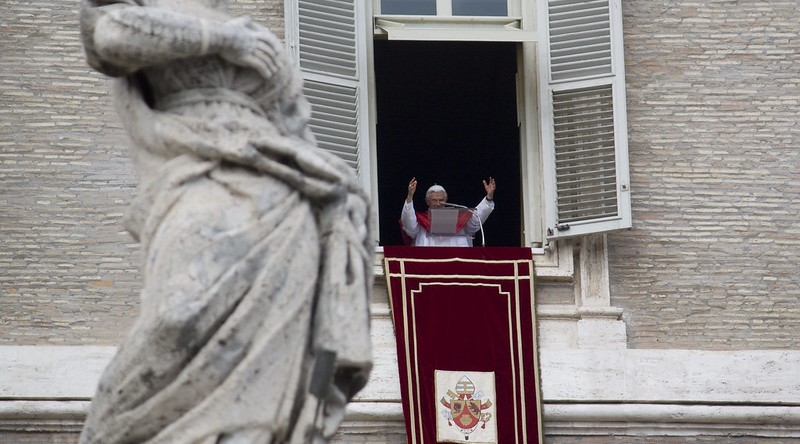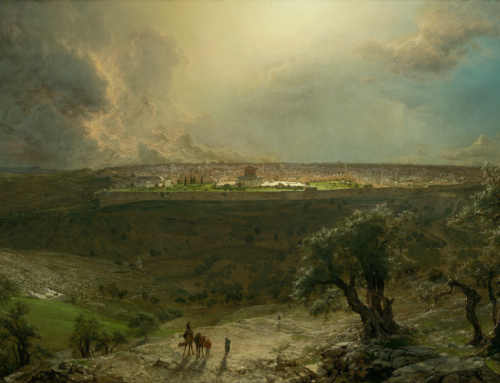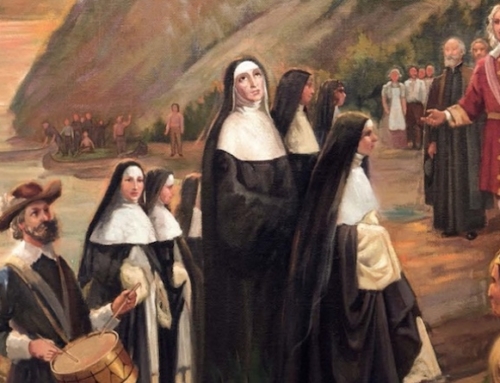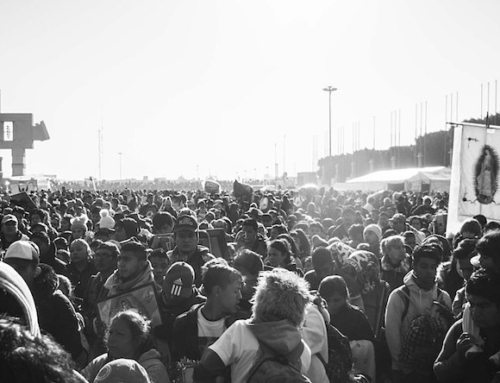In Monsignor Robert Hugh Benson’s dystopian novel, Lord of the World, the Church is finally being defeated. The protagonist, Fr. Percy Franklin, after the destruction of Rome, is elected pope by the last few surviving cardinals. He chooses the name Silvester, “the last saint in the procession of the Christian year.” While left unstated, the reason the new pope takes that name is linked to the last days of the Christian faith. In the book’s closing lines, Benson describes the pope in adoration of the Blessed Sacrament, with the world’s government hunting him down.
The whole book leaves us pondering what Matthew 16:18 really means: “you are Peter, and upon this rock I will build my church, and the gates of the netherworld shall not prevail against it.” Benson’s final scene compares the dropping of bombs to “the thrill of harping and the throb of heavenly drums.”
Lord of the World was written over a hundred years ago, but almost every generation down through the ages has believed the Church to be crumbling to its end. Although Pope Benedict XVI was full of accomplishments as a professor, cardinal, and pope, his resignation from the papacy in 2013, after reigning for eight years, is how most of the world will remember him. News headlines expressed shock at the decision, as did the whole world, both Catholic and not. And there certainly was a lot of confusion when Benedict XVI resigned. If the Holy Spirit led the college of cardinals to elect him, how could he resign?
But the Lord says, “My thoughts are not your thoughts, nor are your ways my ways” (Isa 55:8). Saint Thomas Aquinas reminds us that “all things are subject to divine providence, not only in general, but even in their own individual selves” (ST I q. 22, a. 2). We often want to reject this fact for a whole host of reasons: the prevalence of evil in the world, the inability to recognize our freedom as compatible with God’s will, our own distaste with the world. . . . We often have a hard time understanding divine providence.
But we can come to believe in God’s love. In his first encyclical letter, Pope Benedict XVI wrote: “Being Christian is not the result of an ethical choice or a lofty idea, but the encounter with an event, a person, which gives life a new horizon and a decisive direction” (Deus Caritas Est, 1). God’s love is a mystery, but Jesus Christ is that love, and that love was well contemplated and expressed by Benedict XVI.
He saw the love of God active in his own life, and he wrote about how he was able to see God’s guidance during the darkest stretches of his life (“The Spiritual Testament of Pope Emeritus Benedict XVI”). God’s love is his providence, and it is trustworthy. The world today views the Church as seemingly at its end. But Benedict, like Saint Peter, deeply contemplated and trusted in Christ’s words in Matthew 16: “the gates of the netherworld shall not prevail against it.” This trust stayed with him during his time as “pope emeritus,” when he spent the final ten years of his life in a monastery in the Vatican gardens praying for the Church and the world. Despite this generation—like every generation—thinking the Church was at her last, Benedict XVI in contrast saw that, “the reasonableness of faith has emerged and is emerging anew. Jesus Christ is truly the Way, the Truth, and the Life – and the Church, in all her shortcomings, is truly His Body” (“Spiritual Testament”).
In the final lines of Benson’s novel, the Pange Lingua is being sung, with Pope Silvester’s “down-bent head hidden by the silver-rayed monstrance and That which it bore.” On December 31, 2022, the commemoration of Saint Silvester, Pope Emeritus Benedict XVI passed from the glory of this world and, we pray, passed into the greater glory of heaven. His final words: “Lord, I love you.”
✠
Photo by Fr. Lawrence Lew, O.P. (used with permission).







